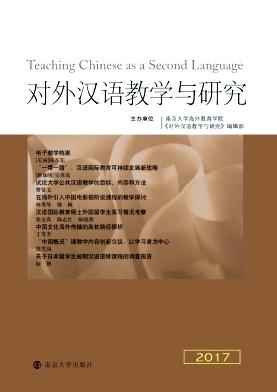Digital Service-Learning: Creating Translanguaging Spaces for Emergent Bilinguals’ Literacy Learning and Culturally Responsive Family Engagement in Mainstream Preservice Teacher Education
引用次数: 1
Abstract
Although the number of emergent bilinguals (EBs), also known as English language learners (ELLs) in U.S. K-12 schools is growing at an increasing rate, K-12 mainstream teachers remain predominantly white and monolingual and receive little training for working with such learners. In addition, many states mandate “English-only” policies that prevent EBs from accessing grade-level content and academic language. Given digital inequalities, remote learning as a result of the COVID-19 pandemic may put them even further behind academically. Moreover, EBs may not have adequate at-home parental support to develop language skills in literacy. Recent studies (García & Li, 2014) have indicated that translanguaging offers great potential to close the academic achievement gap and facilitate home-school connections by embracing EB students’ home language and culture. This article discusses a qualitative participatory action research study that examined how monolingual elementary preservice teachers (PSTs) constructed a translanguaging stance and enacted it in a digital service-learning (DSL) setting in an undergraduate ESOL methods course at a southeastern university in the U.S. The article also offers insights into curriculum development and implementation as to preparing monolingual mainstream PSTs to support linguistically and culturally diverse students and families through translanguaging.数字服务学习:在主流职前教师教育中为新兴双语者的识字学习和文化响应性家庭参与创造跨语言空间
尽管在美国K-12学校中,新兴双语者(EBs),也被称为英语学习者(ELLs)的数量正在以越来越快的速度增长,但K-12的主流教师仍然以白人和单语者为主,并且很少接受与这些学习者合作的培训。此外,许多州强制执行“只讲英语”的政策,阻止EBs访问年级水平的内容和学术语言。鉴于数字不平等,2019冠状病毒病大流行导致的远程学习可能会使他们在学术上进一步落后。此外,EBs可能没有足够的家庭家长支持来发展语言技能。最近的研究(García & Li, 2014)表明,通过接受EB学生的母语和文化,翻译语言为缩小学业成绩差距和促进家校联系提供了巨大的潜力。本文讨论了一项定性参与性行动研究,该研究考察了单语小学职前教师(pst)如何在数字服务学习(DSL)环境中构建译语立场,并在美国东南部一所大学的本科ESOL方法课程中实施。文章还提供了课程开发和实施的见解,以准备单语主流pst来支持语言和文化多样化的学生和家庭通过翻译语言。
本文章由计算机程序翻译,如有差异,请以英文原文为准。
求助全文
约1分钟内获得全文
求助全文

 求助内容:
求助内容: 应助结果提醒方式:
应助结果提醒方式:


